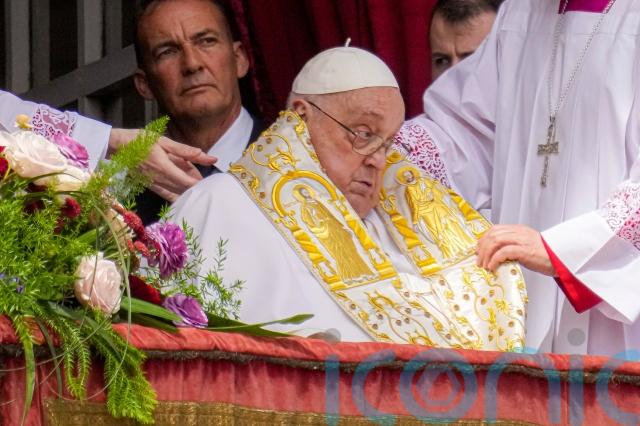
April 21, 2025 – In a moment many are calling both profound and symbolic, Pope Francis died on Easter Monday, just one day after delivering his final Easter blessing to the world. His passing, at the age of 88, comes during the most sacred days in Christianity when believers worldwide celebrate the resurrection of Jesus Christ.
On Easter Sunday, Pope Francis appeared on the central balcony of St. Peter’s Basilica to deliver the traditional Urbi et Orbi (“to the city and the world”) blessing. Despite visible signs of frailty, he spoke with clarity and warmth, praying for peace, unity, and hope across war-torn regions and struggling communities. It would be his final public act as pontiff.
The following morning, on April 21, the Vatican confirmed the Pope had passed away peacefully in his residence. The announcement stunned the Catholic world and left many wondering: was this a holy coincidence or divine timing?
A Sacred Parallel (Resurrection and Death)
Easter Monday marks the continuation of the Easter celebration, a time when Christians reflect on the Risen Christ and the promise of eternal life. That Pope Francis, a man deeply associated with humility, mercy, and spiritual renewal would die on such a day has triggered deep reflection among clergy and faithful alike.
“His final breath came as the Church celebrated new life,” said Archbishop Paul Ayanda of Nairobi. “It’s as if Pope Francis entered into the resurrection with Christ his death becomes a living homily.”
This poetic alignment has fueled global discussions about the spiritual weight of his passing. Social media is awash with tributes calling it a “heavenly sign,” while others point to the symbolic closing of his 12-year reformist papacy at the heart of Christian belief the resurrection.
Throughout his papacy, Pope Francis championed values that mirrored the core message of Easter: rebirth, hope, and radical compassion. From washing the feet of prisoners to reaching out to atheists, refugees, and the LGBTQ+ community, his work sought to resurrect what he called the “true soul of the Church.”
His death on Easter Monday, many say, is more than timing it’s testimony.
“He always wanted the Church to be a place of resurrection, not condemnation,” noted Vatican analyst Lucia Romano. “Now his own death reflects the message he lived by.”
As the Vatican begins preparations for a new papal conclave, speculation grows over who will carry forward the spiritual legacy of Pope Francis. Cardinals from across the world, including leading figures from Africa, Asia, and Latin America, will soon gather in Rome to choose his successor.
Yet even as the Church looks forward, it does so in the shadow of a moment that many believe will be remembered not just as the end of a papacy but as a holy echo of the resurrection story itself.